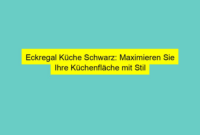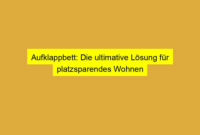Introduction
Sanctuaryvf Friend, welcome to this comprehensive guide on Standard Bank cheques. In this article, we will delve deep into the world of standard bank cheques, exploring their features, advantages, and potential drawbacks. By the end, you will have a thorough understanding of this banking instrument and its role in today’s financial landscape.
🔍 What is a Standard Bank Cheque?
A Standard Bank cheque is a form of payment provided by the Standard Bank Group, a leading financial institution in Germany. It serves as an alternative to cash transactions, enabling individuals and businesses to make payments using a written order, known as a cheque. These cheques are typically issued to account holders and can be utilized for various purposes, such as bill payments, purchases, or even monetary gifts.
🌟 Strengths of Standard Bank Cheque:
1. Enhanced Security: Standard Bank cheques incorporate multiple layers of security features, including watermarks, holograms, and signature verification. This ensures a high level of protection against counterfeit or fraudulent activities.
2. Wide Acceptance: Standard Bank cheques are accepted by most merchants, making them a convenient and widely recognized form of payment across the country.
3. Record Keeping: When using cheques, both the payer and the recipient benefit from a documented trail of transactions, offering enhanced transparency and accountability.
4. Payment Flexibility: By issuing a cheque, individuals can choose the timing of payment, allowing for better financial planning and control over cash flow.
5. Overdraft Facility: Standard Bank cheques often come with an overdraft facility, enabling account holders to withdraw funds even when their account balance is insufficient, subject to certain terms and conditions.
6. Convenient Tracking: Banks provide detailed statements that outline cheque transactions, making it easier for account holders to track their expenses and reconcile accounts.
7. Alternative to Cash: Carrying large sums of cash can be risky. With a cheque, individuals can make payments safely without the burden of carrying physical currency.
💔 Weaknesses of Standard Bank Cheque:
1. Transaction Time: Unlike electronic payment methods, cheque transactions may take longer to complete, which could be an inconvenience for time-sensitive payments.
2. Lack of Universality: While Standard Bank cheques are widely accepted, there might be instances where certain merchants or individuals do not accept cheques as a form of payment.
3. Potential for Frauds: Despite the security measures in place, there is always a risk of forged signatures or altered cheques. Account holders need to be vigilant and report any suspicious activities to their bank immediately.
4. Replacement Hassles: If a cheque is lost or stolen, the process of issuing a replacement can be time-consuming and may incur additional fees.
5. Necessity of Bank Account: To issue a Standard Bank cheque, individuals must have an active bank account with the institution. This restricts the usage of cheques to bank customers only.
6. Fees and Charges: Some banks may levy fees for issuing or processing cheques, adding to the overall cost of transactions.
7. Environmental Impact: The use of paper cheques contributes to deforestation and pollution. As the world moves towards digital alternatives, cheques may become less sustainable.
Standard Bank Cheque Information
Key Information |
Details |
|---|---|
Issuer |
Standard Bank Group |
Accepted By |
Most merchants and businesses |
Security Features |
Watermarks, holograms, signature verification |
Transaction Time |
Varies, typically requires clearing period |
Replacement Process |
Contact the bank, provide necessary details |
Fees and Charges |
Depends on the bank’s policies |
Frequently Asked Questions (FAQs)
1. How do I request a chequebook from Standard Bank?
To request a chequebook from Standard Bank, simply visit your nearest branch or use the online banking platform. Follow the instructions provided, and your chequebook will be issued to you.
2. Can I use a Standard Bank cheque internationally?
Yes, Standard Bank cheques can be used internationally, subject to the recipient’s acceptance and the bank’s clearing process.
3. What should I do if my cheque gets lost or stolen?
If your cheque is lost or stolen, contact your nearest Standard Bank branch immediately to report the incident. They will guide you on the necessary steps to proceed for the replacement process.
4. Are there any limits on the amount I can write on a Standard Bank cheque?
Standard Bank imposes certain limits on the maximum amount that can be written on a cheque, depending on the type of account and account holder’s history.
5. Can I post-date a Standard Bank cheque?
Yes, you can post-date a Standard Bank cheque by writing a future date on it. However, please note that the recipient might not be able to encash or deposit the cheque until the date provided.
6. What happens if there aren’t sufficient funds in my account for a Standard Bank cheque?
If there aren’t sufficient funds in your account to cover a Standard Bank cheque, it may lead to the cheque bouncing or getting returned unpaid, potentially incurring fees or penalties.
7. Can I cancel a Standard Bank cheque?
Yes, you can request to cancel a Standard Bank cheque if it hasn’t been presented for payment. Visit your nearest branch or contact customer service for assistance with the cancellation process.
8. Are there any alternatives to using Standard Bank cheques?
Yes, there are various alternatives to using Standard Bank cheques, such as online banking transfers, card payments, mobile payment apps, and digital wallets.
9. How long does it take for a Standard Bank cheque to clear?
The time taken for a Standard Bank cheque to clear varies depending on the clearing process, but it typically ranges from a few days to a week.
10. Can I deposit a Standard Bank cheque into someone else’s account?
Yes, you can deposit a Standard Bank cheque into someone else’s account. However, ensure that you have the necessary authorization and the recipient’s account information before proceeding with the deposit.
11. Are there any age restrictions for issuing a Standard Bank cheque?
Standard Bank imposes age restrictions on issuing cheques, typically requiring individuals to be 18 years or older.
12. Can I customize the design of my Standard Bank cheque?
Standard Bank may offer customization options for the design of your chequebook cover at an additional cost. Contact the bank for further details and available options.
13. Are there any tax implications associated with using Standard Bank cheques?
Standard Bank cheques do not have direct tax implications. However, transactions conducted through cheques might have tax implications based on the nature of the transaction and applicable tax laws. Seek professional advice if required.
Conclusion
In conclusion, Standard Bank cheques offer a secure and widely accepted method of payment in Germany. Despite their strengths, including enhanced security, wide acceptance, and convenient tracking, they also possess certain weaknesses such as transaction time and potential for fraud. It is essential for individuals to weigh these pros and cons before deciding whether to use Standard Bank cheques for their financial transactions.
If you find Standard Bank cheques aligning with your financial preferences and requirements, we encourage you to explore this payment instrument further. Visit your nearest Standard Bank branch to learn more about opening an account and opting for cheque services.
Take control of your financial transactions today with Standard Bank cheques!
Disclaimer: The information provided in this article is for informational purposes only and does not constitute financial advice. It is important to conduct thorough research and consult with financial professionals before making any financial decisions.




